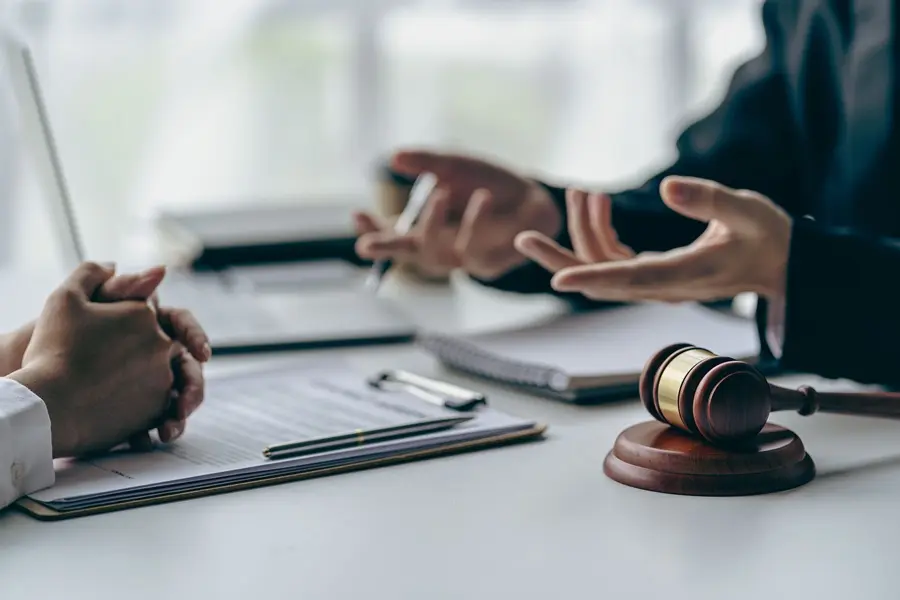Table of Contents
Elevators and escalators are essential fixtures in many commercial and residential buildings across Mississippi. They help people navigate multi-story buildings quickly and conveniently. However, when these systems malfunction or are poorly maintained, accidents can occur, leading to serious injuries. If you or someone you know has been injured in an elevator or escalator accident, you may be entitled to compensation for your injuries.
This blog will explore the process of pursuing a personal injury claim for elevator or escalator accidents in Mississippi. From understanding common causes of these accidents to taking the necessary legal steps, we will guide you through what you need to know if you’ve been hurt in such an incident.
Common Causes of Elevator and Escalator Accidents
Elevator and escalator accidents are more common than many people realize. These incidents can happen in both commercial and residential buildings, leading to injuries ranging from minor bruises to severe fractures or even fatalities. Some of the most frequent causes of accidents include:
- Mechanical Failures: Elevator or escalator malfunctions, such as sudden stops, door issues, or misalignment, can lead to serious accidents. These failures may occur due to lack of proper maintenance or faulty components.
- Improper Maintenance: Regular inspections and maintenance are necessary to keep elevators and escalators running safely. Failure to properly maintain these systems increases the risk of accidents.
- Operator Error: In some cases, the person operating an elevator (if applicable) or the design of the escalator itself can contribute to accidents. For example, miscommunication between operators and passengers or unclear instructions can cause confusion, leading to injuries.
- Design Defects: In some instances, the design of the elevator or escalator itself may be unsafe, contributing to accidents. Poor design features, such as inadequate handrails or uneven steps, can cause trips and falls.
- Obstructions: Objects obstructing the path of an elevator or escalator, such as debris, clothing, or other items, can lead to serious accidents. If these obstructions aren’t quickly cleared, they can pose a danger to passengers.
- Improper Use: Escalators are intended to transport people between levels safely, but improper use can lead to injury. For example, trying to ride an escalator while carrying large or unwieldy items can cause accidents.
Understanding the factors that contribute to these accidents is crucial when considering your legal options after an injury.
Steps to Take After an Elevator or Escalator Accident
If you’ve been injured in an elevator or escalator accident, taking the right steps immediately following the incident can significantly impact the outcome of any personal injury claim. Here’s what you should do:
- Seek Medical Attention
Regardless of how minor the injury seems, seek medical attention right away. Injuries from elevator and escalator accidents can range from sprains and strains to more serious injuries such as fractures, spinal cord injuries, or head trauma. Getting checked out by a doctor will not only ensure your safety, but it will also create a record of your injuries, which will be vital for your claim.
- Document the Scene
If possible, take photographs or videos of the accident scene. Capture the condition of the elevator or escalator, as well as any damage, malfunction, or hazardous conditions that may have caused the accident. This visual evidence can be valuable in supporting your claim.
- Report the Incident
Notify the building management or property owner about the accident immediately. They will typically file a report documenting the details of the incident. Request a copy of this report for your own records. This helps create a paper trail that can serve as important evidence in your claim.
- Collect Witness Information
If there were any witnesses to the accident, be sure to get their contact details. Witnesses who can attest to the circumstances of the incident may help strengthen your case. Their testimonies may confirm the cause of the accident or the negligence involved.
- Keep Detailed Records
As your medical treatment continues, make sure to keep all records related to your injuries. This includes hospital visits, doctor’s notes, prescriptions, and physical therapy records. Also, keep track of any time you have missed from work due to your injuries. These records will help you calculate the full extent of your damages and potential compensation.
Identifying Liability for Elevator and Escalator Accidents
In any personal injury case, one of the key aspects to address is who is responsible for the accident. With elevator and escalator injuries, several parties could potentially be liable, depending on the circumstances. These parties may include:
- Building Owner or Property Manager: The property owner or building manager is generally responsible for maintaining safe conditions for everyone on the premises. This includes ensuring that elevators and escalators are properly maintained and in good working order. If they fail to do so, they may be held liable for any accidents that occur as a result of their negligence.
- Maintenance Companies: Many building owners hire third-party maintenance companies to inspect and repair elevators and escalators. If an accident occurs due to a failure to properly maintain or repair the system, the maintenance company may be liable for the injury.
- Manufacturers: If the accident was caused by a defect in the elevator or escalator’s design or manufacturing, the manufacturer could be held liable. Product liability claims can arise if the equipment was defectively designed or built.
- Contractors: In some cases, construction or installation errors by contractors can lead to accidents. If a contractor was responsible for installing the elevator or escalator and did so improperly, they may be held accountable for any resulting injuries.
Establishing liability is crucial in a personal injury claim. An experienced personal injury attorney can help determine who is at fault and guide you through the process of seeking compensation.
Legal Options for Seeking Compensation
Once liability has been established, you have several legal avenues to pursue compensation for your injuries. These options may include:
- Filing a Personal Injury Lawsuit
If someone else’s negligence caused your accident, you have the right to file a personal injury lawsuit. This could be against the building owner, maintenance company, contractor, or manufacturer, depending on who was responsible for the unsafe conditions. A personal injury lawsuit can help you recover damages for:
- Medical expenses
- Lost wages from missed work
- Pain and suffering
- Emotional distress
- Future medical costs (for long-term injuries)
- Settling Out of Court
In many cases, personal injury claims are settled out of court. The responsible party’s insurance company may offer a settlement to avoid a lengthy trial. While a settlement can be quicker and less stressful, it’s important to ensure the offer covers all your expenses and future needs. Before agreeing to any settlement, it’s a good idea to consult with a personal injury attorney to make sure it’s fair.
- Product Liability Claim
If the accident occurred due to a defect in the elevator or escalator, a product liability claim may be an option. In this case, the manufacturer may be held responsible for your injuries. These claims can be complicated, but an attorney experienced in product liability law can help.
How an Attorney Can Help
Filing a personal injury claim for an elevator or escalator accident can be complex, especially when multiple parties may be involved. An experienced personal injury lawyer can help you navigate the process, gather evidence, and negotiate with insurance companies. They will also ensure that your legal rights are protected and help you pursue the compensation you deserve.
A lawyer will assist in determining who is responsible for the accident and help you understand your options for seeking justice. They will also help you gather medical records, witness statements, and any other relevant evidence to support your claim.
Conclusion
Elevator and escalator accidents can cause significant injuries that affect your physical, emotional, and financial well-being. If you’ve been injured in such an accident in Mississippi, it’s important to know that you have legal options for seeking compensation. By taking the proper steps and consulting with an experienced personal injury lawyer, you can ensure that your rights are protected and that you receive the compensation you need to recover.
If you or a loved one has been injured in an elevator or escalator accident, reach out to a personal injury attorney who can guide you through the legal process and help you pursue the justice you deserve.

